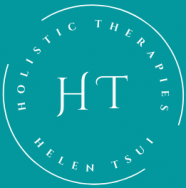What is Reflexology?
I have had some quite amusing guesses at what Reflexology actually is; one being that it is to do with the reflexes in the body for example, your knee and elbow reflexes. I can see where they were going with this to give them credit. I know when I went to my first treatment I had no idea what to expect. So if you don’t know and want to know more you have come to the right blog. This is my first blog and so it seemed appropriate that I uncovered for you the mysteries of Reflexology.
You may be really surprised to learn that Reflexology has actually been around since the Ancient Egyptian times and was also believed to have been practiced in China around the same time as well as in North America. Can’t you just see Cleopatra having a Reflexology treatment after her milk bath! The modern incarnation of Reflexology, though changed, has it roots in this and the therapy was first introduced into the western world with the work conducted by Dr William Fitzgerald in the early 1900s.
So back to what modern Reflexology is. It is a holistic and complementary therapy that goes beyond a foot massage. It’s a non-invasive treatment that is intended to aid the body’s healing processes and bring the client to a state of balance (homeostasis) and wellbeing. This is done through touch therapy on points on the feet, hands or face, predominantly by finger or thumb pressure being applied and these points are reflexes that represent organs, parts or glands of the body. The big toe as an example has reflex points reflecting the head and the ears the sinuses and so on.
The world we live in these days can bring many stressors that impact on our physical and mental wellbeing. Reflexology can help to provide deep relaxation and wellbeing, thereby helping to provide an opportunity for the body to reset.
Whilst incredibly powerful Reflexology is a complementary therapy and so a reflexologist cannot diagnose or give medical advice. However read on for just how many wonderful benefits it does have!
What are the benefits of Reflexology?
There are a number of benefits for your body, mind and general wellbeing. It also depends on what you are seeking Reflexology for as to how it will benefit you.
In summary Reflexology works to: 1. Reduces stress and induces deep relaxation, 2. Improves circulation and 3. Balances the whole system.
Reflexology can help the client feel a deep relaxation and by putting the body into a state of deep relaxation it can allow the parasympathetic nervous system to function effectively.
The actual act of massaging the feet in particular can help to increase the blood circulation and can also benefit those that have lymphoedema issues.
The power of touch therapy also cannot be underestimated and is a powerful benefit of this treatment. However as it is usually only the feet, hands or face that are treated it is a non invasive treatment that some will feel more comfortable with rather than something like a full body massage.
Finally your reflexologist will also be keen to offer you aftercare advice that can help support you outside of your Reflexology treatments.
Is there anyone that can’t have Reflexology?
Generally speaking, anyone can have Reflexology no matter how old or young they may be or what their health condition may be. There are only a few occasions or medical conditions when a Reflexologist may not be able to treat you or may ask that you check with your doctor first. They will obtain a medical history from you and discuss this with you if relevant.
If you are suffering from something like a verrucae it will not prevent you have from having Reflexology but you should put a plaster over this and the Reflexologist will avoid this area.
If in doubt contact your reflexologist before your appointment.
How many treatments will I need?
The reflexologist will explain to you what they think will be the best treatment plan for you taking into account your needs and why you wanted Reflexology. This could be once a week or once a month and really is individual to the person and their needs. The Reflexologist however will also work with you in regards to your ability to attend.
Is there anything specific that should be done after treatment?
As Reflexology treats the person not just the health condition it will depend on the individual. However generally speaking you should ensure you keep hydrated, avoid caffeine for the first 24 hours if you can and that goes for alcohol as well. This gives a chance for your body to focus on reaping the benefits of the treatment without toxins interfering.
Appointments with me:
I offer a free consultation if you would like to have a chat to find out more and see if Reflexology could help you.
I offer appointments in my home practice in Whyteleafe but also happy to travel to you within a reasonable distance of Whyteleafe and in particular covering Caterham, Purley, Warlingham, Oxted and surrounding areas.
